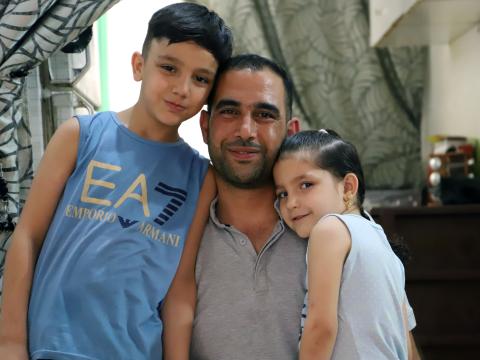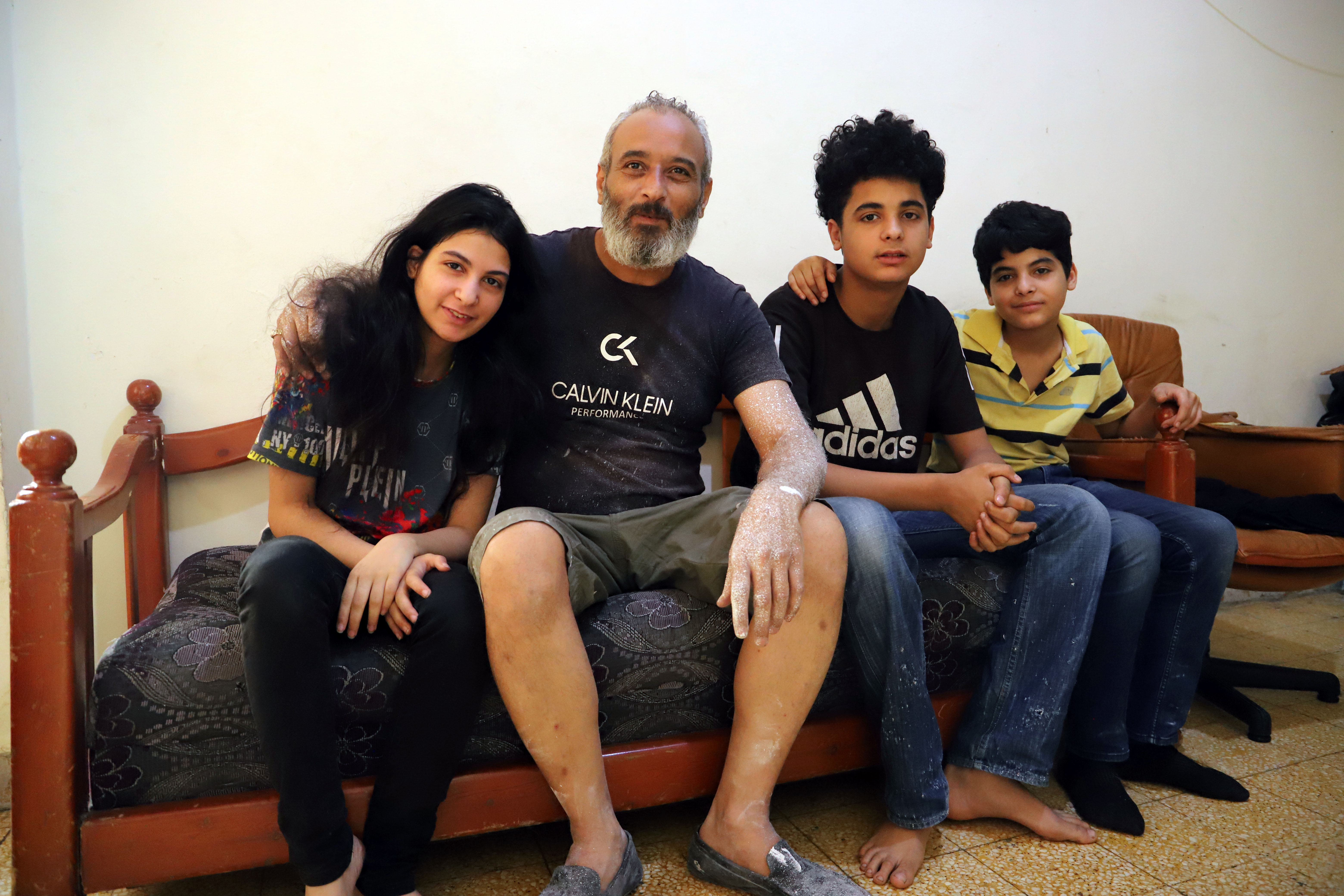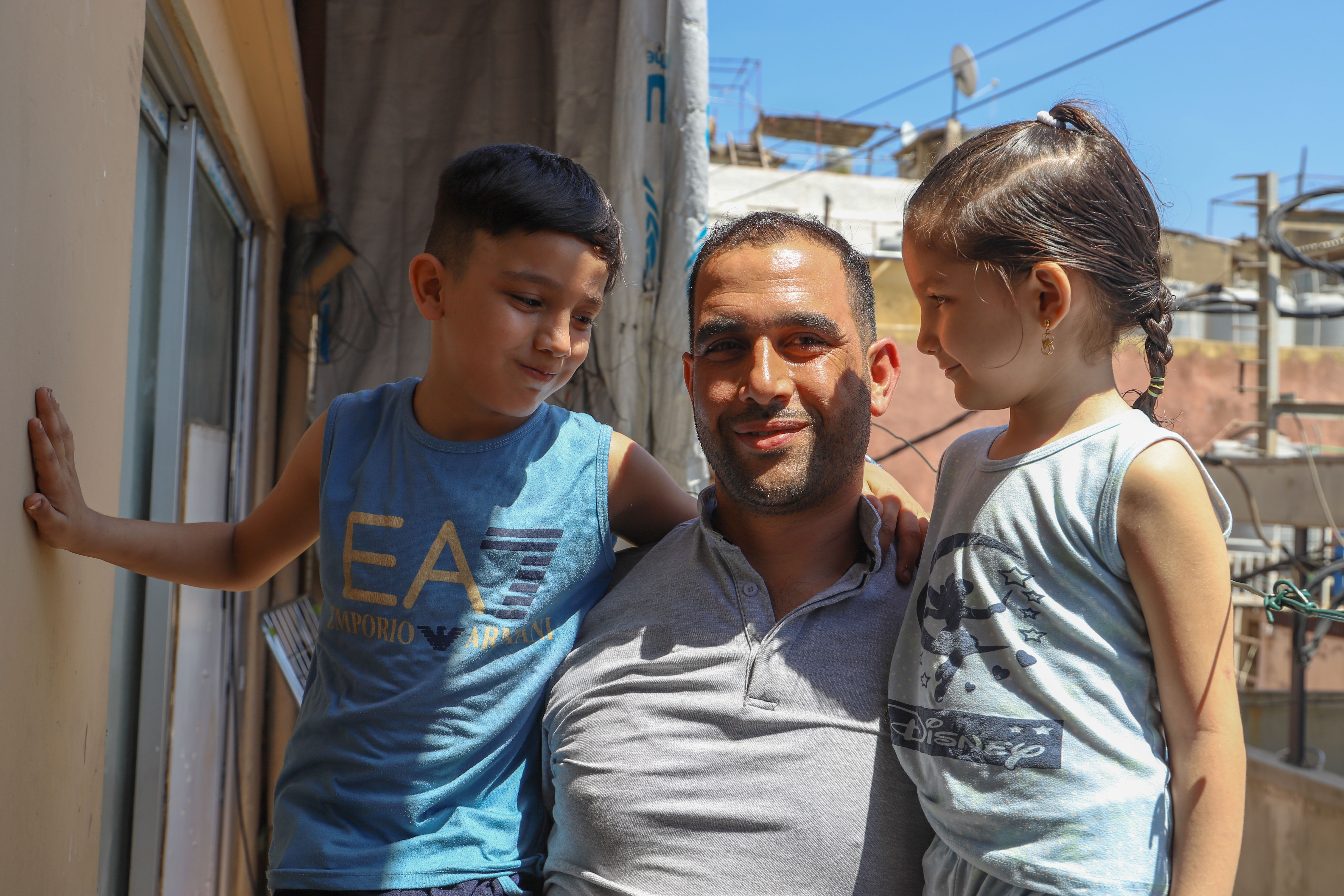Fathers Matter

Fathers, like mothers, are pillars in the development of a child’s well-being – Having a loving and nurturing father is crucial for a child's happiness, safety, and social and academic success. However, the multidimensional crisis in Lebanon is adding enormous stress on families, particularly on fathers who are the sole breadwinners in most families.
Becoming a better father
“Everything changed. Ever since the economic collapse, everything changed,” emphasizes forty-six-year-old Fouad. “Our life was more or less stable, my income was stable, and my children were well-fed. Contrariwise, everything took a dark turn four years ago when the crisis began. Presently, I am barely able to buy food supplies for my family.” The crisis in Lebanon is not similar to any “short-term and common crisis” – rather it is one of the top three most severe crisis episodes globally since the mid-nineteenth century.
According to a recent Food Security update by the World Bank, Lebanon ranks first globally in food price inflation at 350%. “I am a daily worker. I work in construction. I wasn’t able to find any work opportunities for the past seven months. Thankfully, I was able to find a project yesterday,” says Fouad. “I live on debt. Whatever I make, I will have to pay back,” adds the father of four.
Fouad and his family live in a poor neighbourhood in the suburbs of Beirut. “In addition to our poor living situation, I am constantly worried about the security of my children. We live in a poor and unsafe area. From time to time we hear gunshots. Last week, a fight broke out nearby and someone got stabbed.”
The overall living conditions increased the negative coping mechanisms of families in the country – Thus resulting in an increased risk of child labour, school dropout, child violence and other forms of child exploitation and abuse. “Honestly, I used to come back home angry from the overall situation so I resorted to violence against my children. I knew it was wrong, but I was not able to control my anger,” reveals Fouad. “I couldn’t believe that my children were scared of me. My eldest child did not want to communicate with me due to how scared he used to be.”

With its implementing partners, World Vision adopted the community-based approach in the Nurturing Care Groups (NCG) project. It targets harmful coping behaviours and attitudes in Syrian refugees and host community caregivers by disseminating key messages about education, protection, and well-being. “So far I participated in around eight or nine sessions. I took part in the sessions because I wanted to become a better father,” says Fouad. “I learned a lot of things that I was not aware of. I learned that it is important to spend time with the children and to have good communication and be honest. I am very proud that I stopped resorting to violence and my children are becoming my friends. I want them to continue their education. I want them to be better than me.”
Spreading the message
Fathers play a role in every child’s life that cannot be filled by others. This role can have a large impact on a child and help shape him or her into the person they become. This is what led Mostafa not to just take part in the sessions but rather to be a volunteer and share his experience with other caregivers. “The father is the pillar of the house. A house without a man is void. Children can be a reflection of their fathers. This is why I like to spread the importance of being a parent and in this specific case a father,” says Mostafa.
Mostafa, is a Syrian refugee currently living in the suburbs of Beirut. “After the crisis broke out in 2011 I decided to build a life in Lebanon. I got married in 2014 and am currently a father to two,” says Mostafa. “Before the economic collapse, things were much better, but things started deteriorating after 2019. I used to be a furniture carpenter but now I am a multitasker; I just work anything to be able to provide for my family and pay rent.”
According to the recent Vulnerability Assessment of Syrian Refugees in Lebanon (VASyR), almost half the parents (47%) reported resorting to physical aggression and 47% to psychological aggression, while severe violence was reported at 7 per cent. “I used to resort to verbal and physical violence toward my children. However, after participating in the sessions I learned how to better communicate with my children,” says Mostafa. “The main topics I received, and currently disseminating are: how to raise children, child methodology, how to deal with them during their puberty and adolescence and how to build their trust.”

Presently, Mostafa is proving sessions to nine caregivers at his home. “I am noticing a big progress with the fathers who are attending the sessions. They learned how to better deal with and treat their children. This is creating a better home environment for the families,” says Mostafa. “I am teaching them to let their children live their childhood as they should be. Show them love and care. Most importantly show them that they can rely on their parents. Currently, the caregivers are always excited to take part in the sessions.”
Being a father is a blessing and at the same time a big responsibility for Mostafa. “I will go above and beyond for my children. I want them to have a better life than the one I lived. I will make sure they continue their education,” says Mostafa.
Under the Nurturing Care Groups project, World Vision aims to provide 1,840 caregivers, with key messages about child protection and education seeking to decrease their harmful coping mechanisms and change their harmful behaviours and attitudes towards children.